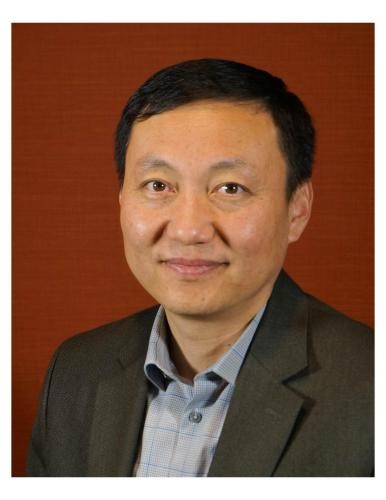
搜索网站、位置和人员

新闻与活动 活动信息
西湖名师论坛第177期 | 任兵:Recent Advances in Single-cell Epigenomics
时间
2023年7月18日(周二)
10:00-11:20
地点
西湖大学云谷校区E10-201
主持
西湖大学生命科学学院 特聘研究员张延晓
受众
全体师生
分类
学术与研究
西湖名师论坛第177期 | 任兵:Recent Advances in Single-cell Epigenomics
时间:2023年7月18日(周二)10:00-11:20
Time:10:00-11:20 AM, Tuesday, July 18, 2023
地点:西湖大学云谷校区E10-201
Venue: E10-201, Yungu Campus
主持人:西湖大学生命科学学院 特聘研究员张延晓
Host: Dr. Yanxiao Zhang, PI of School of Life Sciences

Bing Ren
Director of the Center for Epigenomics
Professor of Cellular and Molecular Medicine at the University of California, San Diego (UCSD)
主讲人/Speaker:
Dr. Ren is Director of the Center for Epigenomics and Professor of Cellular and Molecular Medicine at the University of California, San Diego (UCSD). Dr. Ren obtained his Ph.D. in Biochemistry from Harvard University in 1998 and joined the faculty of UCSD in 2001, after completing postdoctoral training at the Whitehead Institute. Dr. Ren’s research is focused on discovery and characterization of the transcriptional regulatory sequences in the human genome, with a goal to understand how these DNA elements direct spatiotemporal patterns of gene expression, and how DNA variants in these sequences contribute to human diseases. He has contributed to annotation of the transcriptional regulatory elements in the human and mouse genomes, characterization of their activities at single cell resolution in diverse tissues and developmental stages, and elucidation of the general principles of genome architecture and regulation. He is a recipient of the Chen Award for Distinguished Academic Achievement in Human Genetic and Genomic Research, and an elected fellow of the American Association for the Advancement of Science.
报告题目/Title:
Recent Advances in Single-cell Epigenomics
讲座摘要/Abstract:
I will present two recent advances in single-cell epigenomics for the study of dynamic gene regulation in complex tissues during development and disease pathogenesis. (1) We previously reported Paired-Tag, a combinatorial-indexing-based method that can simultaneously map histone modifications and gene expression at single-cell resolution at scale. However, the lengthy procedure of Paired-Tag has hindered its general adoption in the community. To address this bottleneck, we develop a droplet-based Paired-Tag protocol that is faster and more accessible than the previous method. Using cultured mammalian cells and primary brain tissues, we demonstrate its superior performance at identifying the candidate cis-regulatory elements and associating their dynamic chromatin state to target gene expression in each constituent cell type in a complex tissue. (2) A major computational challenge in analyzing single cell epigenomics datasets is to project the large-scale and high dimensional data into low-dimensional space while retaining the relative relationships between cells in order to decompose the cellular heterogeneity and reconstruct cell-type-specific gene regulatory programs. Conventional dimensionality reduction methods suffer from computational inefficiency, difficulty to capture the full spectrum of cellular heterogeneity, or inability to apply across diverse molecular modalities. We have developed a fast and nonlinear dimensionality reduction algorithm that not only more accurately captures the heterogeneities of single-cell omics data, but also features runtime and memory usage that is computational efficient and linearly proportional to cell numbers. We implement this algorithm in a Python package named SnapATAC2, and demonstrate its superior performance, remarkable scalability and general adaptability using an array of single-cell omics data types, including single-cell ATAC-seq, single-cell RNA-seq, single-cell Hi-C, and single-cell multiomics datasets.
讲座联系人/Contact:
科技合作部 sci-tech02@westlake.edu.cn

















